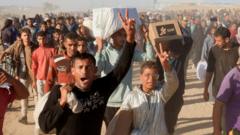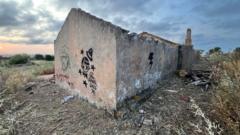Many Nigerians living abroad return home during holiday seasons, often enhancing the festive atmosphere but also deepening the class divide for locals struggling with rising costs and shifting priorities.
The Class Divide: How Nigerian Diaspora Visits Impact Local Communities

The Class Divide: How Nigerian Diaspora Visits Impact Local Communities
A closer look at the economic and social tensions caused by the influx of Nigerians abroad returning home, particularly during holiday celebrations.
Article text:
During the holiday season, Nigeria experiences a spectacle reminiscent of a blockbuster movie featuring emotional reunions at bustling airports, extravagant nightlife, and vibrant Afrobeats performances that draw audiences from near and far. This annual phenomenon is marked by the return of Nigerians living abroad, colloquially referred to as "IJGB" (I Just Got Back). They come not only loaded with gifts but also with currencies strengthened by favorable exchange rates, contributing significantly to the local economy.
However, the arrival of these returnees also exposes a harsh reality for those who remain in Nigeria. Local residents in cities like Lagos and Abuja often find themselves feeling increasingly alienated from their own surroundings, as soaring prices during the festive period make life unaffordable. This sentiment is particularly pronounced during "Detty December," a term that encapsulates the celebratory mood around Christmas and New Year’s. A Lagos-based radio host expresses discontent, noting that traditional patrons are often sidelined as businesses cater to wealthier IJGBs during this busy season.
The socio-economic divide is stark in a nation rich in oil yet plagued by financial hardships. According to Oxfam, Nigeria's wealth gap has reached crisis levels, with recent statistics revealing that just over 10% of the population holds more than 60% of the country's wealth. The World Bank highlights that approximately 87 million Nigerians live below the poverty line, emphasizing a systemic issue that is deeply rooted in Nigeria’s history and politics.
Martins Ifeanacho, a sociology professor, attributes the widening gap to the self-serving motivations of the political elite, who fail to consider the plight of ordinary citizens. Meanwhile, the public experience a nuanced class system, where wealth and perception dictate social status. The radio presenter illustrates this point, describing how patrons arriving in upscale vehicles like a Range Rover receive prompt service while those in less luxurious cars are often overlooked.
As opportunities remain scarce and social mobility is hindered, many Nigerians see emigration as the only path to a better life. This modern-day exodus, termed "japa," meaning "to escape," has intensified among the younger generation, with surveys indicating that as many as 70% of young Nigerians would leave the country if given the chance.
Despite the barriers, achieving success can become an impossible expectation. Lulu Okwara, a recruitment officer and IJGB, mentions the societal pressure to excel, underscoring that there is no room for failure in Nigeria. The return of expatriates during holiday periods often presents a façade of success, as they aim to return as "heroes" to their families and communities.
The prevalence of foreign accents among the IJGBs, even those who have never left the country, serves as a testament to the lengths individuals will go for social acceptance—and status. Social media reactions suggest that some of these returnees might not live up to their projected wealth, reflecting a broader culture where reputations can overshadow reality.
Bizzle Osikoya, founder of The Plug Entertainment, notes that some returnees have attempted to dispute payments for events, highlighting the pressure they feel to maintain an image of affluence even when financial means may be lacking. In this landscape of impression and performance, those capable of displaying wealth might find themselves better positioned in Nigeria's social hierarchy.
As holiday seasons approach, the interplay between the returning diaspora and local communities raises critical questions about identity, wealth disparity, and social dynamics in Nigeria. The impact is profound, reflecting a society grappling with its structure amid claims of class distinction.
During the holiday season, Nigeria experiences a spectacle reminiscent of a blockbuster movie featuring emotional reunions at bustling airports, extravagant nightlife, and vibrant Afrobeats performances that draw audiences from near and far. This annual phenomenon is marked by the return of Nigerians living abroad, colloquially referred to as "IJGB" (I Just Got Back). They come not only loaded with gifts but also with currencies strengthened by favorable exchange rates, contributing significantly to the local economy.
However, the arrival of these returnees also exposes a harsh reality for those who remain in Nigeria. Local residents in cities like Lagos and Abuja often find themselves feeling increasingly alienated from their own surroundings, as soaring prices during the festive period make life unaffordable. This sentiment is particularly pronounced during "Detty December," a term that encapsulates the celebratory mood around Christmas and New Year’s. A Lagos-based radio host expresses discontent, noting that traditional patrons are often sidelined as businesses cater to wealthier IJGBs during this busy season.
The socio-economic divide is stark in a nation rich in oil yet plagued by financial hardships. According to Oxfam, Nigeria's wealth gap has reached crisis levels, with recent statistics revealing that just over 10% of the population holds more than 60% of the country's wealth. The World Bank highlights that approximately 87 million Nigerians live below the poverty line, emphasizing a systemic issue that is deeply rooted in Nigeria’s history and politics.
Martins Ifeanacho, a sociology professor, attributes the widening gap to the self-serving motivations of the political elite, who fail to consider the plight of ordinary citizens. Meanwhile, the public experience a nuanced class system, where wealth and perception dictate social status. The radio presenter illustrates this point, describing how patrons arriving in upscale vehicles like a Range Rover receive prompt service while those in less luxurious cars are often overlooked.
As opportunities remain scarce and social mobility is hindered, many Nigerians see emigration as the only path to a better life. This modern-day exodus, termed "japa," meaning "to escape," has intensified among the younger generation, with surveys indicating that as many as 70% of young Nigerians would leave the country if given the chance.
Despite the barriers, achieving success can become an impossible expectation. Lulu Okwara, a recruitment officer and IJGB, mentions the societal pressure to excel, underscoring that there is no room for failure in Nigeria. The return of expatriates during holiday periods often presents a façade of success, as they aim to return as "heroes" to their families and communities.
The prevalence of foreign accents among the IJGBs, even those who have never left the country, serves as a testament to the lengths individuals will go for social acceptance—and status. Social media reactions suggest that some of these returnees might not live up to their projected wealth, reflecting a broader culture where reputations can overshadow reality.
Bizzle Osikoya, founder of The Plug Entertainment, notes that some returnees have attempted to dispute payments for events, highlighting the pressure they feel to maintain an image of affluence even when financial means may be lacking. In this landscape of impression and performance, those capable of displaying wealth might find themselves better positioned in Nigeria's social hierarchy.
As holiday seasons approach, the interplay between the returning diaspora and local communities raises critical questions about identity, wealth disparity, and social dynamics in Nigeria. The impact is profound, reflecting a society grappling with its structure amid claims of class distinction.




















